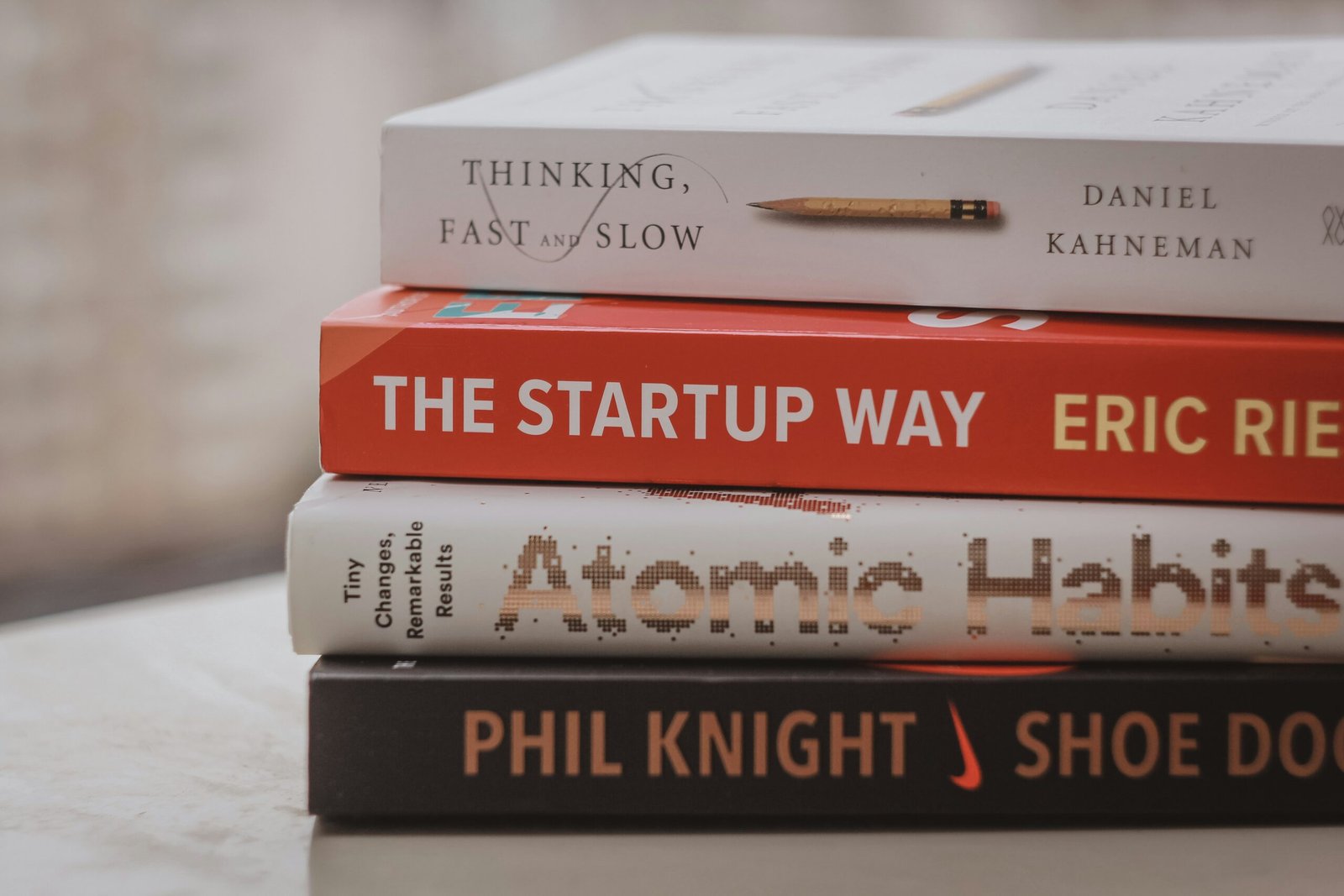Welcome to our guide on smart money management for long-term wealth. To build lasting wealth and secure your financial future, it takes more than luck. It needs careful planning, disciplined habits, and a clear goal.
In this article, we’ll cover key strategies and practices. This will help you manage your money wisely. You’ll also learn how to create a strong foundation for wealth that lasts a long time.
Key Takeaways:
- Develop healthy financial habits and set clear short- and long-term goals.
- Regularly conduct financial audits and review your debts, credit score, and spending patterns.
- Create and maintain a budget using different budgeting methods that suit your needs.
- Minimize expenses and cut non-essential costs to save more.
- Consider seeking professional financial help to navigate complex situations.
Setting Financial Goals
Improving your finances and reaching wealth starts with clear financial goals. These goals are your guide. They help you make smart money choices. With short-term and long-term goals, you can make your dreams come true.
Short-term Goals
Short-term financial goals are your quick wins. They’re what you plan to achieve in a year or less. Maybe it’s paying off a bit of debt, saving for a vacation, or starting an emergency fund. Achieving these goals gives you the boost to aim higher.
Mid-term Goals
Mid-term goals range from one to five years. They are the bridge between quick wins and big dreams. You might save for a house down payment, pay off big loans, or invest in career growth. These goals help your wealth grow step by step.
Long-term Goals
Long-term financial goals look beyond five years. They’re about securing your future. These goals could be for retirement, your child’s college fund, or building wealth for generations. It takes consistent effort to reach these major life milestones.
Having short-term, mid-term, and long-term financial goals gives your plan variety and balance. Each goal plays a role. They keep you motivated and on track. By setting these goals, you make choices that match your dreams and values.
Conducting Financial Audits
Checking your finances regularly is key to understanding them well. You should look at how you’re paying off debt, if your credit score changes, and how you spend your money. This lets you see what needs work. Then, you can change your plans to achieve your money goals.
“Financial audits provide a holistic view of your financial health and help you make informed decisions regarding debt repayment, credit improvement, and spending habits.”
– Jane Davis, Certified Financial Planner
Reviewing Debt Repayment Progress
Looking at how you’re paying off debt is critical in a financial audit. List all your debts like credit card bills, student loans, and home loans. Check if your plan to pay them off matches your financial aims.
Focus on paying off high-interest debts first. Set up a plan that helps you pay steadily. Watching your progress keeps you going and lets you tweak your plan if you need to.
Monitoring Changes in Credit Score
Your credit score is crucial for your financial health. So, regularly seeing where it stands is vital. Watching for any score changes alerts you to problems or areas to better.
Having a higher credit score helps you a lot financially. It influences whether you can get loans, rent homes, and the interest rates you get. Keeping a good score opens many financial doors and saves you money.
Analyzing Spending Patterns
Checking how you spend money is a part of any financial audit. Go through your monthly costs and split them into needs and wants. This helps spot where you’re spending too much and where you can save.
Using budgeting tools or apps can make this easier and clearer to understand. Knowing where you can cut back lets you put money towards more important goals, like reducing debt or investing.
Financial Audit Checklist
| Aspect | Actions |
|---|---|
| Debt Repayment | Review outstanding debts, create a repayment plan, and track progress. |
| Credit Score | Check credit score regularly, monitor changes, and take steps to improve it. |
| Spending Review | Analyze monthly expenses, categorize necessary and discretionary spending, and identify areas for adjustment. |
Creating and Maintaining a Budget
A budget helps you manage your money well. It lets you plan how to spend your income on various needs and saving goals. By knowing your earnings and spending, you can make smart choices about your money.
There are many ways to create a budget that fits how you use your money. Let’s look at some common ones:
The 50/20/30 Method
The 50/20/30 method makes budgeting simple. Spend 50% of your money on must-haves like housing and food. Then, put 20% into savings or paying off debt. Use the last 30% for fun things, like movies or dinner out.
The Pay-yourself-first Budget
With the pay-yourself-first plan, you save or invest a piece of your income first. Then, you pay your bills. This way, you always add to your savings, aiming for your big money goals.
The Zero-based Budget
A zero-based budget means you give every dollar a job, covering expenses or savings. This helps you watch your spending and use your money fully. It spots where you can cut back to save more or lower debt.
Staying consistent and checking your budget often is key. You should adjust your budget when your money or spending changes. This makes sure it matches your current needs and goals.
“A budget is telling your money where to go instead of wondering where it went.” – Dave Ramsey
See a budget as a flexible tool that you can adjust as needed. It gives you the power to direct your finances. This helps you make purposeful moves toward your financial aims.
Minimizing Expenses and Cutting Non-Essential Costs
Smart money management means being financially disciplined. This involves minimizing expenses and getting rid of costs you don’t really need. Evaluate your discretionary expenses. Then, cut out any unnecessary subscriptions or memberships. This will help you spend less and save more. Making wise choices and cutting costs will help you spend smarter and reach your financial dreams.
Evaluating Discretionary Expenses
To spend less, take a good look at your discretionary spending. See where you’re spending your money and find where you can cut back. Think about spending less on eating out, entertainment, and luxuries. By being careful with your spending and avoiding impulse buys, you can save more. This extra money can go toward savings or investments.
Eliminating Unnecessary Subscriptions and Memberships
Many of us have subscriptions and memberships we don’t really use. Look at all your subscriptions and memberships. Find the ones that aren’t worth it and get rid of them. By canceling things like unused streaming services or gym memberships, you’ll save money every month. You can then use this money for your savings or to invest, helping you build wealth over time.
Finding Cost-Effective Alternatives
To cut unnecessary costs, find cheaper alternatives. Choose generic or store-brand items that are as good as named brands but cost less. Use coupons or shop sales for bigger savings. Also, look for free or cheap ways to have fun. Enjoy the outdoors, borrow books, or go to community events.

“Cutting non-essential costs is key to being financially disciplined. By making smart choices and watching your spending, you can save a lot of money. This lets you put more toward your long-term goals.”
Following these tips helps you cut expenses and encourages wise spending. By being financially disciplined and cutting unnecessary costs, you’ll stay on track with your financial goals. This sets a strong base for building wealth in the future.
Seeking Professional Financial Help
Sometimes, financial issues can be tough to handle on your own. It helps to get advice from a financial advisor or credit counselor. These experts can guide you on handling debt and making good investment choices. They help make sure your finance choices match your goals.
Feeling swamped by debts can be tough. A debt counseling service can offer tools and plans to manage your debts. They can help you budget, talk to creditors, and make a repayment plan. With their help, you can take charge of your debts and aim for financial freedom.
Investing can seem hard, especially for beginners. That’s where investment guidance from professionals comes in handy. A financial advisor can clarify investment choices and strategies that fit your goals. Their advice can help you make smarter choices and possibly increase your earnings.
Why Choose a Financial Advisor?
Financial advisors are skilled professionals ready to offer personalized finance advice. They help you plan out your finances, review your investments, and adjust strategies to improve your financial health. Their knowledge gives you confidence about your financial future.
“A financial advisor can be instrumental in helping individuals make sound investment decisions, navigate complex financial situations, and achieve their long-term financial goals.” – John Smith, Certified Financial Planner
Working with a financial advisor opens up access to unique industry insights and investment options. They can explain the risks in various investments and help diversify your portfolio to boost your returns. Their guidance can make you feel more secure in your financial decisions.
| Professional Financial Help Benefits | Financial Advisor | Debt Counseling Service |
|---|---|---|
| Expertise and Knowledge | ✔ | – |
| Investment Guidance | ✔ | – |
| Debt Management Assistance | – | ✔ |
| Financial Planning | ✔ | – |
Note: Keep in mind, a financial advisor usually charges fees for their services. Always talk about these costs upfront to avoid surprises.
Establishing an Emergency Fund
Creating an emergency fund is key to smart financial planning. It helps you deal with unexpected costs like health emergencies or job loss. This fund ensures you can meet surprises without hurting your future money goals.
Start your emergency fund by saving three to six months of living costs. This amount will prepare you for most money challenges. Keep your fund in an account that’s easy to get to and offers good returns. This way, you can quickly use the money when needed.
An emergency fund is your financial safety. It brings peace of mind and keeps you from using credit cards or savings in a crisis. It helps handle sudden expenses without adding debt or damaging your money health.
“An emergency fund is like having insurance for your finances. It’s there to protect you when the unexpected happens.”
– Jane Smith, Financial Advisor
Saving for Unexpected Expenses
Adding money to your emergency fund regularly is vital. Make it a priority and set aside some income for this each month. To keep saving simple, set up automatic transfers from your paycheck or bank account.
Unexpected costs can pop up anytime, so being ready is key. Whether it’s a big car fix, a health scare, or losing your job, having money saved up gives you stability in tough times. Focus on growing your emergency fund to safeguard against sudden money problems.
| Benefits of an Emergency Fund | Tips for Building an Emergency Fund |
|---|---|
|
|
Having enough saved up can give you the security and calm mind needed for surprise costs. Work on starting and growing your emergency fund regularly. By doing so, you’ll be ready for any financial challenges ahead.
Diversifying Investments
Diversifying your investments helps manage your money effectively. By spreading your investments, you reduce risk and increase your wealth over time.
Investment diversification means putting your money in different types of assets. These can include stocks, bonds, real estate, and mutual funds. It protects you from market ups and downs because each asset reacts differently.
It’s important to regularly check and adjust your investment mix. This means looking at your financial goals and how much risk you can handle. Then, you change your investments to meet your goals and manage risk.
“Diversification is the only free lunch in investing.” – Harry Markowitz
Diversifying your investments brings many benefits. It lessens the impact of one bad investment on your whole portfolio. This lowers your risk of losing money. It also lets you make the most of growth in different areas, aiming for better returns.
The Benefits of Risk Management
- Minimizes the impact of individual asset performance
- Enhances growth potential through exposure to different sectors
- Provides downside protection against market fluctuations
- Increase the stability of your investment portfolio
Investors need to keep checking their strategy to stay well-diversified. This means watching market trends and your own situation. By staying informed, you can adjust your portfolio for the best mix and risk control.
Remember, investing is for the long haul, and diversification is a big part of success. So, use investment diversification to your advantage. Spread your investments wisely for a strong and steady portfolio.
Investing Early and Frequently
Investing early and often is key to growing wealth over time. Starting soon means your money has more time to grow thanks to compounding returns. Small, steady investments can grow big over time.
Using retirement accounts like a 401(k) or IRA is a smart way to save for the future. These accounts have tax benefits that boost your savings. With a 401(k), your contributions are before taxes, lowering your income tax. Plus, many employers match some of your contributions, adding more to your savings.
Dollar-cost averaging is a good way to build wealth over time. This means regularly investing a set amount, no matter the market’s ups and downs. This method helps buy more shares when prices are low and fewer when high. Over time, it evens out market jumps and offers chances to buy at different prices.

Dollar-cost averaging eases the worry of trying to time the market perfectly. It’s about consistently building your share count over time. This strategy lessens the sting of short-term market dips. It also helps avoid bad investment choices based on temporary market changes.
Starting to invest early and doing it often leverages time and compounding to grow your retirement savings. Whether it’s through retirement accounts or other ways, what matters is you keep adding to your investments. Stay focused on your long-term financial goals.
The Benefits of Investing Early and Frequently:
- Maximize the power of compounding returns
- Take advantage of tax benefits offered by retirement accounts
- Smooth out market fluctuations with dollar-cost averaging
- Build discipline and consistency in wealth accumulation
Example Scenario: Retirement Account Contributions
Let’s look at an example to understand the benefits better:
Imagine John, 25 years old, begins putting $200 a month into his 401(k). His employer matches 50% of his contributions up to 6% of his salary. With a 7% annual return and not adding in salary raises or extra employer matches, let’s review his retirement savings growth.
| Age | Years of Contribution | Total Contribution | Account Value |
|---|---|---|---|
| 25 | 40 | $96,000 | $434,087 |
| 35 | 30 | $72,000 | $273,507 |
| 45 | 20 | $48,000 | $115,324 |
| 55 | 10 | $24,000 | $46,073 |
In this example, John’s steady saving shows how important it is to start early and keep at it. Through investing early and regularly, John sees a big jump in his retirement savings.
Begin investing early, stick with regular deposits, and use retirement accounts and dollar-cost averaging. These steps can guide you towards a secure financial future and wealth build-up.
Minimizing Fees and Expenses
Minimizing fees and expenses is key for growing wealth over time. You should know about expense ratios and pick low-cost funds. By paying attention to these costs, you could save a lot on your investments.
“Investment fees can eat away at your returns over time. By being conscious of the expenses associated with your investments, you can potentially save thousands of dollars in the long run.”
– John Smith, Financial Advisor
Understanding Expense Ratios
Expense ratios show the annual cost of investing as a percent of your investment. This fee covers fund management and operations. Always choose investment options with low expense ratios. This means more of your returns stay with you.
Opting for Low-Cost Index Funds or ETFs
Index funds and ETFs mimic the performance of a market index, like the S&P 500. They usually have lower fees than actively managed funds. Choosing these funds helps lower investment fees and still gives you market returns.
Developing Expense Awareness
Knowing about investment fees is crucial for managing your money wisely. Check your investment fees and find ways to cut costs. Stay updated on low-cost investment options to make smart choices and cut unnecessary fees.
Let’s look at a simple example:
| Investment Option | Expense Ratio | 10-Year Investment Return | Net Return after Fees |
|---|---|---|---|
| High-Cost Mutual Fund | 1.50% | 8% | 6.50% |
| Low-Cost Index Fund | 0.10% | 8% | 7.90% |
In this example, choosing a low-cost index fund over a high-cost mutual fund adds 1.40% to your yearly returns. Even small fee differences can greatly boost your investment growth over time.
Being proactive about minimizing fees means you save more of your money. Review your investments, understand their fees, and consider low-cost index funds. These steps are vital for growing your wealth in the long run.
Conclusion
Developing smart money habits is key to long-term wealth and financial security. By setting goals and reviewing finances regularly, you can stay on track. It’s also important to keep a budget, cut costs, and seek advice when needed.
Having an emergency fund is crucial for unexpected bills. Diversifying your investments can reduce risk and increase returns. Start investing early to benefit from compound interest and keep fees low.
Following these money habits can lead to growing wealth and stability. Begin these practices now and see your wealth increase over time.
FAQ
What are the key elements of smart money management?
Smart money management means setting clear financial goals. You should also perform regular financial check-ups. It’s about keeping a budget and reducing costs where you can. Seeking advice from financial experts is wise. You should have money set aside for emergencies. Investing in various places and starting early is key. Don’t forget to keep fees low.
How can I set effective financial goals?
Setting effective financial goals starts with knowing what you want. Break your goals into short-term, mid-term, and long-term. Make sure they are SMART: specific, measurable, achievable, relevant, and time-bound. This approach keeps you on track towards financial success.
What is a financial audit and why is it important?
A financial audit is when you review your money situation. This includes looking at debts, credit scores, and how you spend. Doing this regularly helps you stay on top of your finances. It highlights where you can improve. This is key to hitting your financial targets.
How can I create and maintain a budget?
To create a budget, plan how you’ll spend your income on expenses and savings. Try different budgeting methods like the 50/20/30 rule, or the pay-yourself-first approach. What’s important is to stick to it and keep an eye on your spending habits.
How can I minimize expenses and cut non-essential costs?
Cutting expenses means being disciplined with your money. Look at what you’re spending on and cut back on things you don’t need. Simple changes like eating at home or handwashing your car can save a lot. Over time, these savings add up.
Should I seek professional help for my financial situation?
Getting help from a financial expert like an advisor can be a good move. They can guide you on managing debts, investing, and planning for the future. Their advice can help you set and meet your financial goals.
Why is it important to establish an emergency fund?
An emergency fund is your financial safety net for unexpected costs. It’s for things like sudden illness or losing your job. You should save three to six months of living expenses. This way, you won’t have to rely on credit cards or dip into savings meant for the future.
How can I diversify my investments?
Diversifying means spreading your investments to reduce risk and increase wealth over time. Invest in different areas like stocks, bonds, and real estate. Adjust your investments based on your goals and the market. This strategy helps you build a strong financial foundation.
Why is investing early and frequently important?
Starting your investment journey early helps you grow your wealth. Use accounts that offer tax benefits and make investing automatic. By investing regularly, you can navigate through market ups and downs better. This method helps you take advantage of financial growth opportunities over time.
How can I minimize fees and expenses associated with my investments?
Keeping investment fees low is critical for keeping more of your money. Choose low-cost investment options like index funds. Be aware of how fees can eat into your savings. Checking your investments regularly for unwanted fees is a good habit.
















